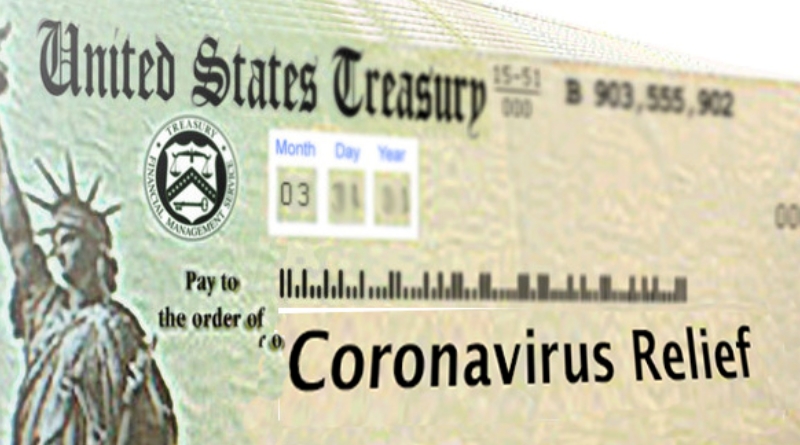Don’t fall for stimulus check scammers
By DWAYNE DAUGHTRY — The federal government hasn’t issued a single stimulus check yet, but scammers are creating crafty methods in attempts to steal your money.
The Federal Bureau of Investigation and other law enforcement divisions are warning Americans not to fall prey for phone calls, texts, emails, or websites that ask for personal information. Most citizens are trying to figure out if they have a direct deposit plan on file with the Internal Revenue Service, scammers are pretending to be the IRS to capture your information and wipe out your bank accounts.
The IRS, police, or government does not call citizens. While it may be true that banks will make collection attempts or notify the account holder of potential fraudulent activities. In a majority of cases, if someone calls you to say you have an outstanding warrant or to verify your social security or other financial information by phone, it is more than likely a scammer. To stay safe, treat any caller as a potential scam artist.
Scammers are claiming to be “detective sergeant with your county sheriffs department,” calling homes of people on the registry and their family members. It happens all the time. Sheriffs departments and the State Bureau of Investigation are well aware of this scheme. However, sheriffs departments in North Carolina NEVER call registrants for compliance issues. But when these counterfeiter-cops call you, hang up and call police immediately.
Scammers are becoming very talented and selfish in their attempts to intimidate, frighten, and drain vulnerable people out of funds. A basic rule of thumb is never to give out banking or personal information by phone. There are safer ways to stop scammers from targeting you.
- Never say you live alone or give out or family information to a caller. Do not verify your home address with any caller.
- Never give out your banking information by phone. Instead, hang up and call the bank or creditor phone number listed on the back of your debit or credit card.
- Police do not call your home for an outstanding warrant. It is best to hang up on people claiming to be police.
- The IRS doesn’t call Americans. Contact the IRS if you gave your social security number to a caller or worried about potential identity theft.
- If someone is trying to scam you online, by calling, or other unwanted means, you may contact the Federal Trade Commission and file a complaint.
- Always call your bank fraud department if you have concerns about your account being targeted.
- Do not be embarrassed if you have been scammed. Millions of people are scammed each year.
Those who file their tax returns electronically and provide the IRS with their bank information will likely get their payments earlier via direct deposit. Some 88% of individual returns were filed electronically in 2018. Only those with closed bank accounts may have a paper check rerouted after the banking error has been sorted.
Paper checks are expected to take longer to mail out. Those that have moved addresses since their 2018 tax return, may have to wait a bit longer.
The IRS specifies on its website that no sign-up is required, and there is no need to call. The agency will post additional information, when it’s available, at www.irs.gov/coronavirus.
The best way to stop scamming is to report it each and every time. Reporting scammers may be the difference between potentially recouping the money you lost versus being silent and never recovering a dime. If we can patiently wait for a stimulus check, then that same patience can slow down the sudden emotion by stopping a scam tactic by hanging up and never starting the conversation. Just because a person knows your name doesn’t ever imply that they know anything about you. Just hang up!
As for these counterfeit-cops? Their felonious antics will finally catch up with them and become just another sad statistic of our prison system.

